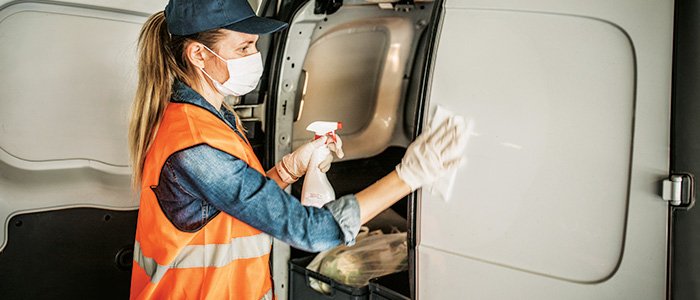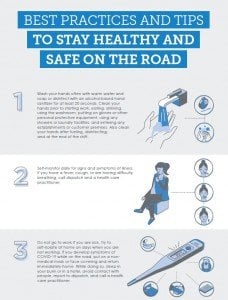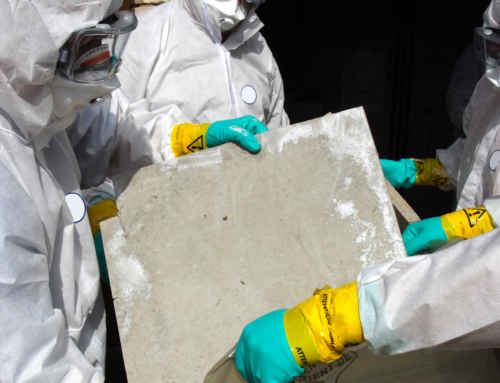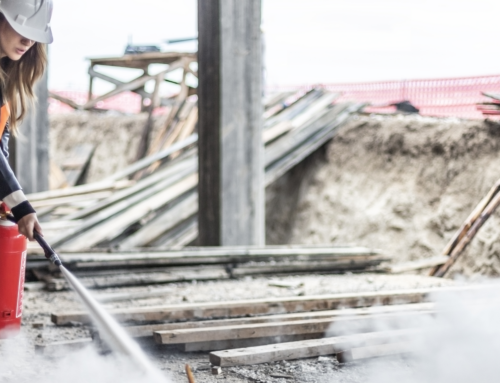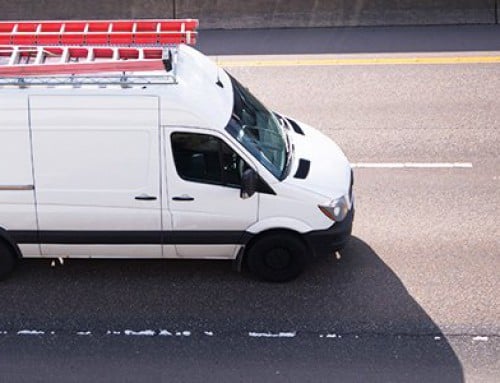1) Wash your hands often with warm water and soap or disinfect with an alcohol-based hand sanitizer for at least 20 seconds. Clean your hands prior to starting work, eating, drinking, using the washroom, putting on gloves or other personal protective equipment, using any showers or laundry facilities, and entering any establishments or customer premises. Also clean your hands after fueling, disinfecting, and at the end of the shift.
2) Self-monitor daily for signs and symptoms of illness. If you have a fever, cough, or are having difficulty breathing, call dispatch and a health care practitioner.
3) Do not go to work if you are sick. Try to self-isolate at home on days when you are not working. If you develop symptoms of COVID-19 while on the road, put on a non-medical mask or face covering and return immediately home. While doing so, sleep in your bunk or in a hotel, avoid contact with people, report to dispatch, and call a health care practitioner.
4) Reduce close contact with other people by keeping a two-metre distance. If you are working as part of a team, stay with the same team and try to use one dedicated truck. Try to remain in the cab during collection/delivery. Stay in your truck when you can. It is recommended to wear a non-medical mask or face covering when you are unable to maintain two-metre distance from others, such as inside truck and rest stops, stores, or eating establishments. Avoid shaking hands.
5) If non-medical masks or face covering and other personal protective equipment are required, ensure they are used appropriately. Clean your hands before putting on and taking off all personal protective equipment. Wear nitrile gloves (instead of work gloves) when loading or unloading, refuelling, and disinfecting. Remove and dispose of gloves in a garbage bag immediately after use. If using work gloves, store under the bunk, not in the cab.
6) Increase cleaning and wash high-touch surfaces with a disinfectant. High-touch surfaces can include in-cab communication devices, the steering wheel, seatbelts, the dashboard, door handles, window controls, fuel caps, gear shifts, air lines, landing gear handles, trailer doors, refrigeration/heater unit controls, and dollies.
Key Facts:
- COVID-19 is caused by the SARS-CoV-2 virus. It spreads between people who are in close contact with one another (within about 6 feet) through respiratory droplets.
- Symptoms can include fever, sore throat, coughing, and difficulty breathing. 80% of those infected will have mild symptoms and will recover at home.
- 1 out of 6 people infected will become seriously ill and will have difficulty breathing.
- Older people and those with underlying medical conditions are more likely to develop a serious illness.
Thank you for your hard work in keeping us and the economy afloat! If you have a fever, a cough or are having difficulty breathing, call a health practitioner immediately.
Download our infographic here!
This blog is provided for information only and is not a substitute for professional advice. We make no representations or warranties regarding the accuracy or completeness of the information and will not be responsible for any loss arising out of reliance on the information.
